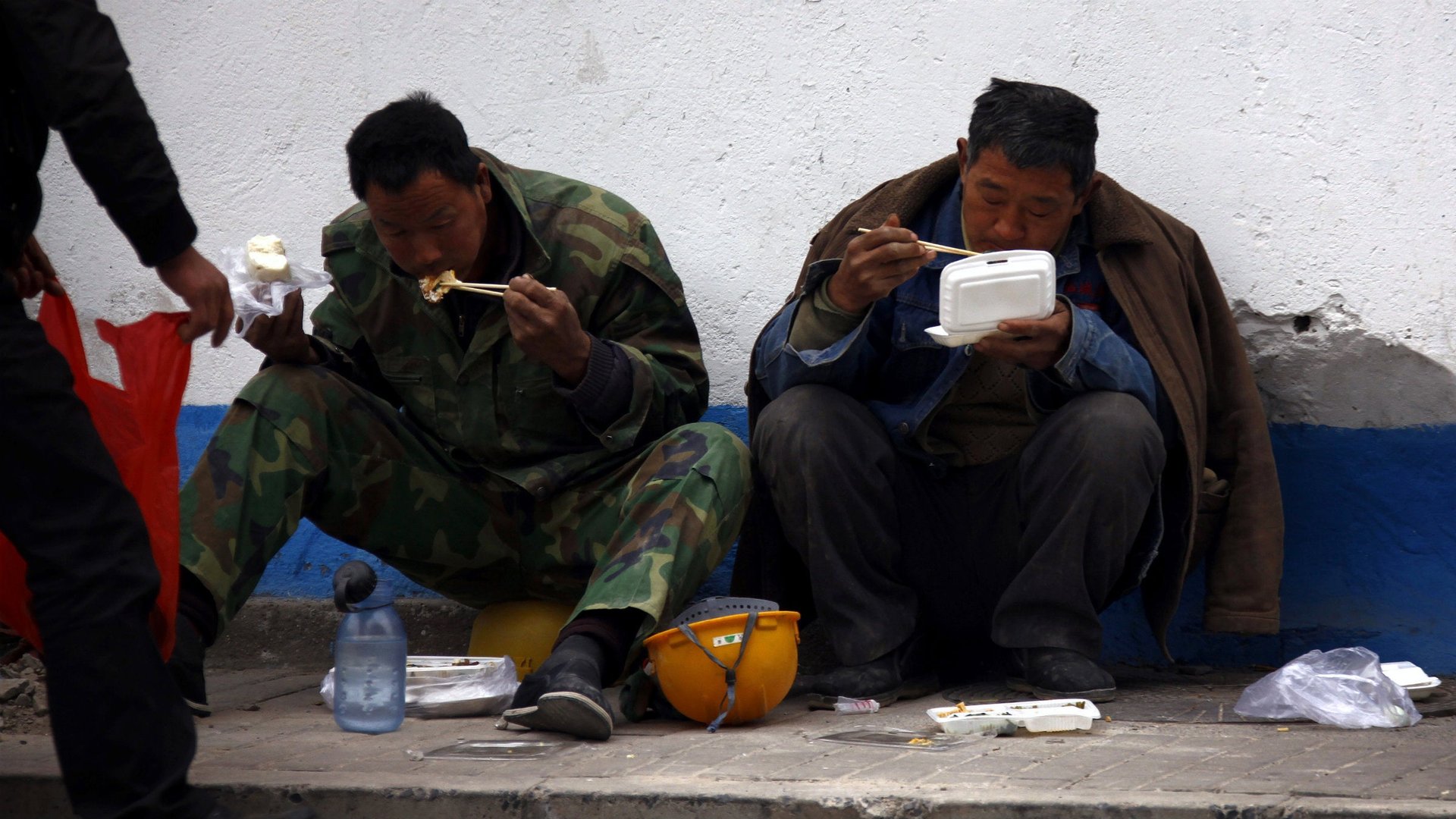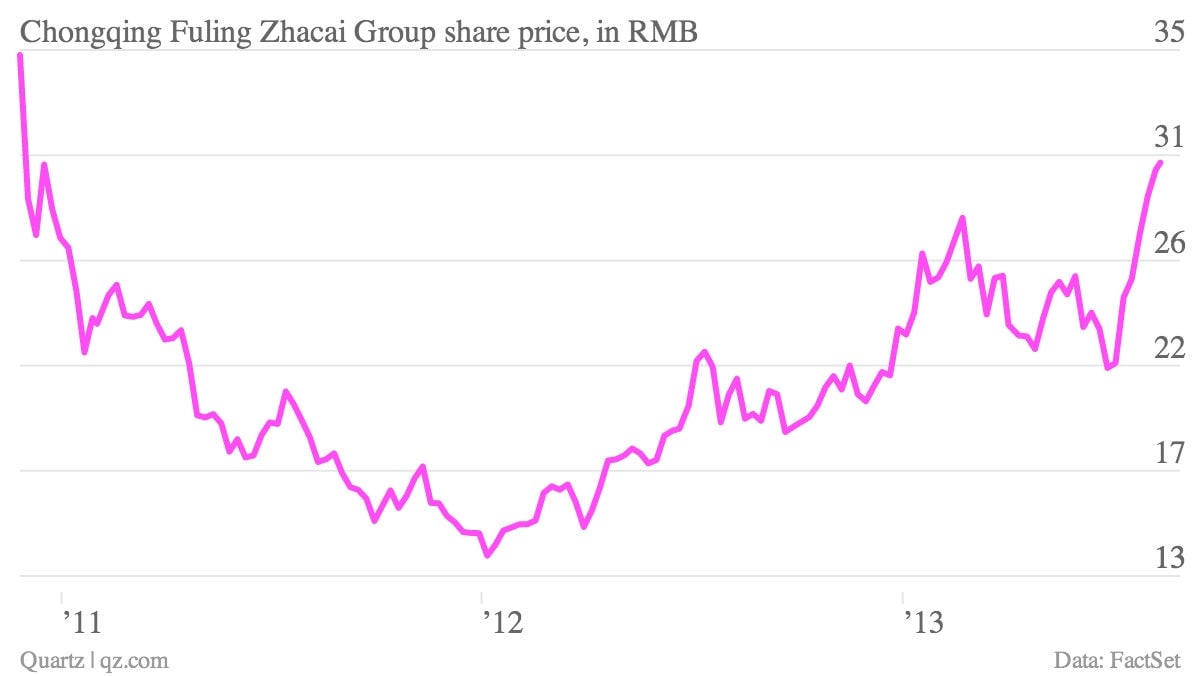Without reliable migration data, Chinese planners are forced to pick a pickle
China’s economic data is notoriously untrustworthy, so when the economic planning bureaucrats in the National Development and Reform Commission need crucial information about the pace of China’s urbanization, they turned to the humble pickle.


China’s economic data is notoriously untrustworthy, so when the economic planning bureaucrats in the National Development and Reform Commission need crucial information about the pace of China’s urbanization, they turned to the humble pickle.
Specifically the NDRC is tracking zhacai (榨菜), a beloved preserved vegetable relish similar to Korean kimchi, which is a staple dish for migrant workers. Nationwide sales of zhacai give the government an approximate fix on the hundreds of millions of transient workers who travel between urban centers looking for low-wage, temporary work, the Economic Observer reported.
Chongqing Fuling Zhacai Group, the biggest zhacai manufacturer, dates back to 1898, when a merchant named Qiu Shou’an first made the pickle by preserving green mustard stems and rubbing them with a spice mixture. The South China Morning Post reports that the company’s sales in southern China have fallen from half of the total to about a third since 2007, as sales in central inland provinces increased.

Unusual economic indicators are nothing new, of course, from the Big Mac Index of purchasing power parity to Alan Greenspan’s tracking of men’s underwear sales, which decline during a recession, to bicycling fatalities, which increase when times are tough. But China’s pickle index highlights how badly its hukou system—the registration documents that every Chinese citizen must have to access social services—needs reform.
Hundreds of millions of Chinese citizens, including about 37% of Beijing’s 20 million residents, are living in cities without proper hukou. That causes endless problems—from income inequality to sham weddings to students who have to travel to rural provinces where they’ve never lived to take college entrance exams.
Reforming hukou will be politically treacherous and enormously costly for China’s rulers. Until it untangles the knotty problem the government’s planners are stuck with pickles. But at least they’re delicious.